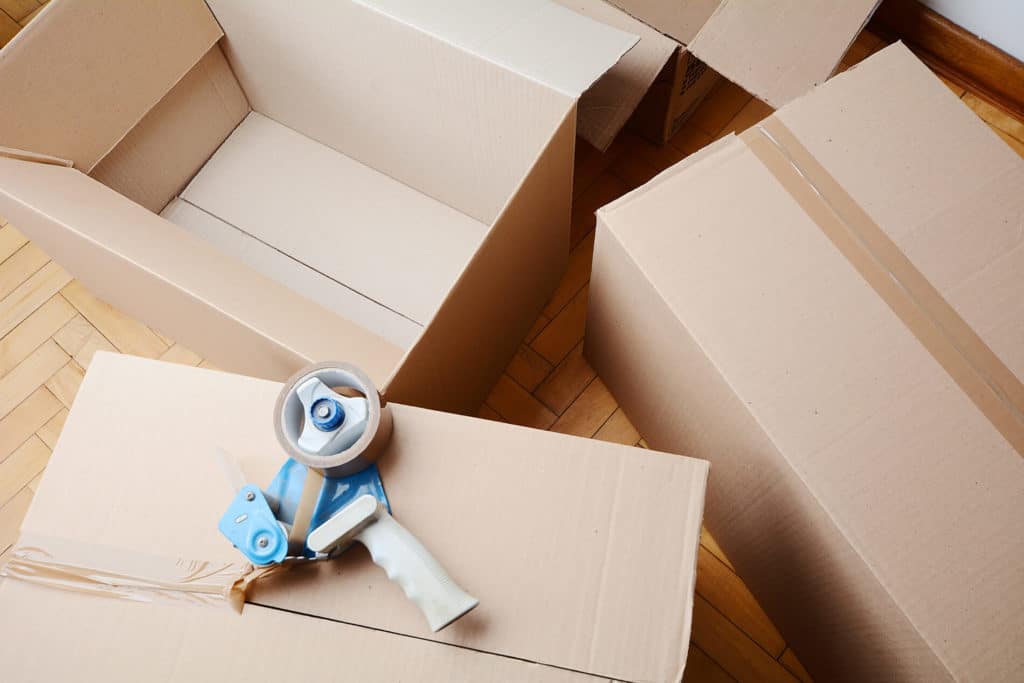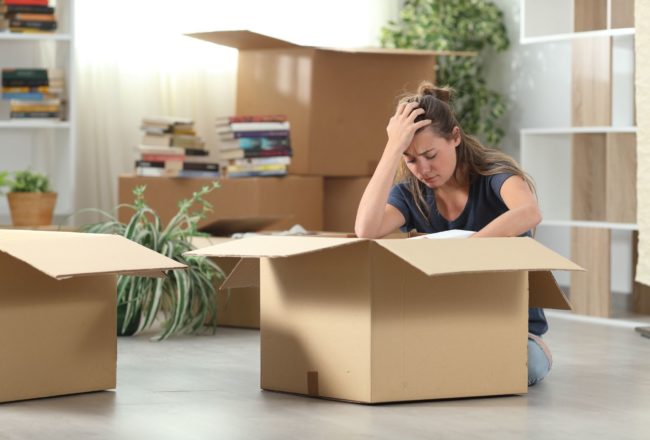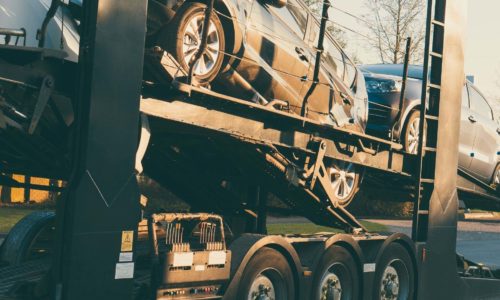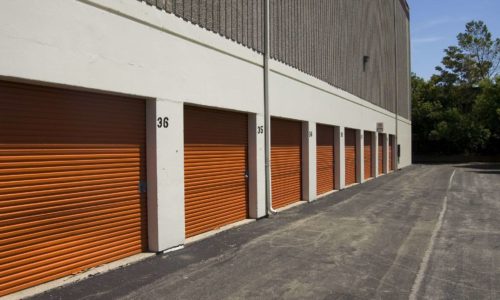Moving from state to state can be a complex and overwhelming process, and failing to learn what not to pack when moving can result in costly and stressful mistakes and can even put your belongings or the safety of those involved in the move at risk. In this article, we’ll discuss some common fails and what shouldn’t be on your wrapping list.
Some common items that should not be packed when relocating include hazardous materials, flammable objects, illegal items, perishable food, plants, and items that you no longer need or use. It’s important to check with your relocation company and familiarize yourself with state and federal regulations to ensure that you are not transporting any prohibited items. Properly disposing of items that should not be packed and taking care when protecting fragile or valuable items can help ensure a smoother and more successful relocation.
What Are Some Common Packing Mistakes You Should Avoid
It’s easy to make mistakes that can lead to damaged belongings or a stressful relocation. To ensure a smoother and more successful process, it’s important to avoid some common mistakes. So, let’s check them out and try to relocate like a pro.
Packing Too Much
We all know how easy it is to get carried away and wrap everything you own, but this can lead to a stressful and costly relocation. Packing too much can make it difficult to organize and transport your belongings. Also, remember that you’ll also have to load a truck.
Packing Fragile Items Improperly
Another common mistake is wrapping fragile items improperly. Breakables like artwork, glasses, and electronics require extra care and attention to ensure that they are protected during transport. Consider the placement of these belongings in the rental vehicle and avoid placing heavy items on top of them.
Not Labeling Boxes Properly
Not labeling boxes properly can make it difficult to find specific items when you need them and can even result in lost or misplaced items. To avoid this mistake, start by labeling each box with a brief description of its contents, the room it belongs in, and any handling instructions or special considerations.
Packing Hazardous Materials and Things to Throw Away When Moving
Wrapping hazardous materials and items that are meant to be thrown away when relocating can be a serious mistake that can result in safety hazards and additional expenses. So, properly sort and dispose of them before the relocation day.
Not Considering the Weight of the Items Being Packed
Overpacking boxes with heavy items can make them difficult to lift and transport and can even cause the box to break or tear during transport. Additionally, heavy boxes can be more difficult to load and unload from the rental truck, potentially causing delays or accidents.
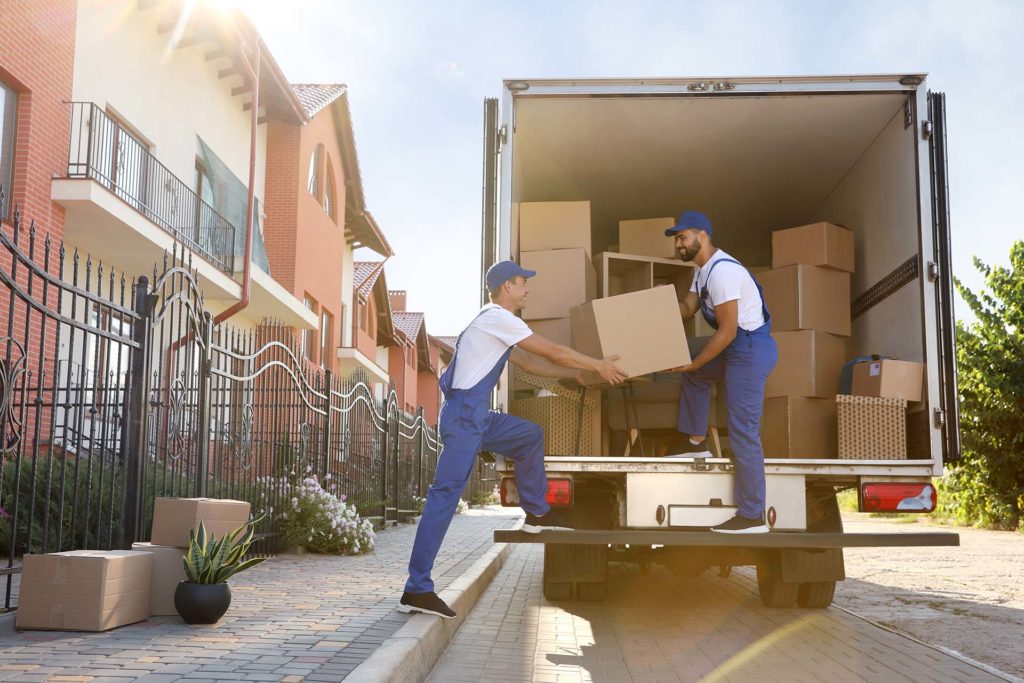
What Not to Pack When Moving Across the Country
When preparing for a big move, it’s important to know what not to bring to ensure a smooth and safe process. Bringing prohibited or hazardous items can pose a risk to your and others’ safety and health, as well as the safety of your belongings.
Additionally, wrapping up unnecessary items can increase the cost and time required to actually relocate. Knowing what items to leave behind or dispose of can help simplify the relocation process and save you time and money. Luckily, you can always consult with our professional State2State Movers and find out all about what you shouldn’t put on your wrapping list.
Perishable Food Items and Plants
Perishable food items and plants are two types of items that should not be packed when relocating across the country. Perishable food items, such as dairy products, meat, and fresh produce, can spoil quickly and may not survive a long move. In addition, cross-country relocation companies won’t transport perishable food items due to the risk of spoilage and contamination. It’s best to consume or donate perishable food before the move and purchase it again once you arrive at your destination.
Plants are another item that should not be packed for a long-distance relocation. Plants are delicate and can be easily damaged during transport, especially if they are not properly prepared and packaged. Additionally, some states have restrictions on the transportation of certain types of plants due to concerns about pests and diseases. Consider leaving them to a family member or a friend who is a plant parent already and finding new ones for your new home.
Flammable Objects
Flammable objects are another type of item that should not be packed. Flammable objects include things like gasoline, propane, and chemicals, which can pose a serious risk during transport. These items can leak or spill, causing damage to your belongings or even posing a fire hazard.
Additionally, federal and state laws regulate the transportation of hazardous materials, and relocation companies may not transport flammable objects due to safety concerns. It’s important to dispose of these items properly before the relocation or find alternative ways to transport them, such as hiring a specialized hazardous materials carrier.
Household Cleaners and Chemicals
Household cleaners and chemicals are another type of item that should be handled with care when boxing your belongings up. While these items are not necessarily prohibited, it’s important to take certain precautions to ensure their safe transportation. First, you should check with your relocation team to see if they have any specific guidelines for transporting these objects.
Additionally, you should make sure that all containers are properly sealed and labeled and that they are packed in a way that prevents them from spilling or leaking during transit. It’s also a good idea to separate your cleaners and chemicals from any food items or personal care products to prevent contamination. If possible, consider using up or donating these items before the move to reduce the amount you need to transport.
Illegal Items
Illegal items are another type of item that should never be packed when interstate moving. This includes items such as illegal drugs, counterfeit goods, and stolen property. Bringing these items can result in serious legal consequences, including fines, imprisonment, and seizure of your belongings.
How to Avoid Packing Fails When Moving Across the Country
Failing to protect your belongings correctly can lead to lost, damaged, or broken items. To help you avoid packing fails and ensure a smoother move, we’ve put together some tips and strategies you should definitely follow for an efficient relocation.
Start With the Wrapping Process Early
Starting early allows you to take the time to wrap items carefully and thoroughly, ensuring maximum protection. Make the wrapping schedule and begin by gathering the necessary materials and wrapping items that are fragile or valuable, such as glassware, artwork, or electronics.

Get Rid of Unnecessary Items
By decluttering your home and getting rid of items that you no longer need or want, you can simplify your relocation, reduce stress, and even save money. Go through each room in your home and sort items into piles such as keep, sell, donate, and get rid of.
If you’re at the last-minute relocation and need some tips for wrapping things in a hurry, ensure you check out the video below. You can find some suggestions on how to speed up the decluttering process in the video below.
Use the Right Packing Materials
Using the right packaging materials is crucial when preparing for a relocation. The right materials can help protect your belongings during transport, minimizing the risk of damage or breakage. Common materials include sturdy boxes in a variety of sizes, packaging paper, bubble wrap, packing peanuts, and duct tape.
Label Boxes Clearly
Labeling boxes clearly is an important step when organizing a wrapping process. By clearly marking the contents of each box, you can quickly and easily identify where your belongings are and avoid the need to dig through multiple boxes to find what you need. Labeling boxes can also help you keep track of fragile or high-priority items that require special care during transport.
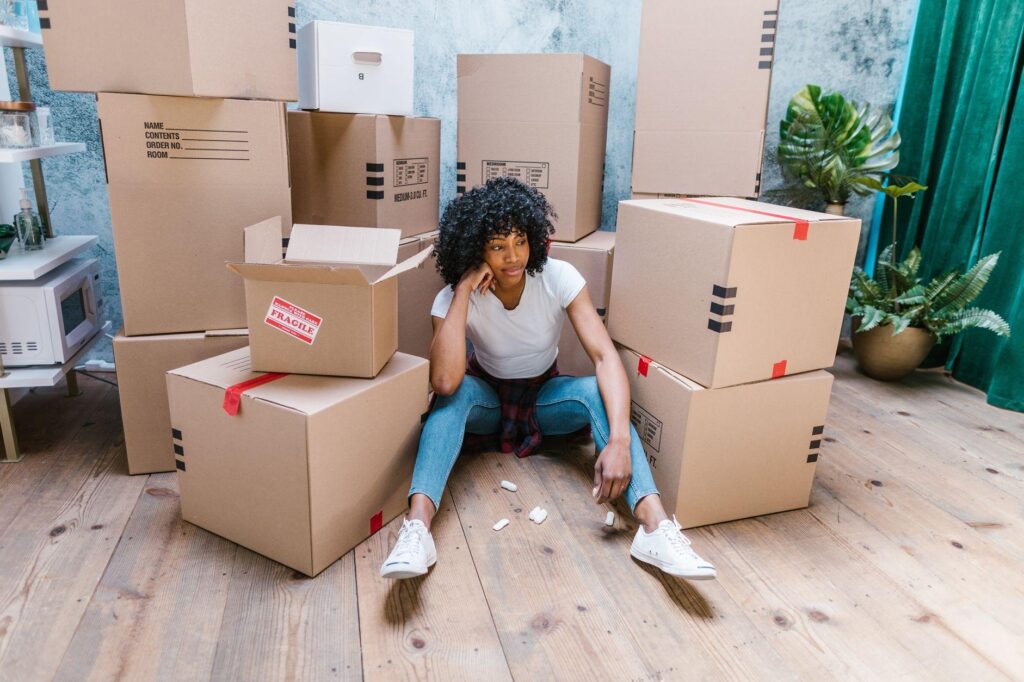
Consider Hiring Professional State to State Movers to Help You Pack
Hiring professional long-distance movers can be a smart decision when it comes to wrapping and transporting your belongings. Professional movers have the experience and expertise to secure your items by using high-quality materials and techniques, minimizing the risk of damage during transport. So, ensure you book the best long-distance moving services and don’t worry about a thing.
Consult Your Movers About What to Get Rid of When Moving
Consulting your movers can be a helpful strategy to simplify your relocation and avoid unnecessary stress and expense. Professionals have experience and can provide valuable insights into what items are worth bringing and what items can be left behind.
Be honest about your needs and goals for the relocation, and ask for their recommendations on what items to bring and what to leave behind. Working with a reputable company that offers a packing service will help streamline your belongings and reduce the amount you need to transport. If you wish to store something, they can also tell you everything you should know when renting a storage unit.
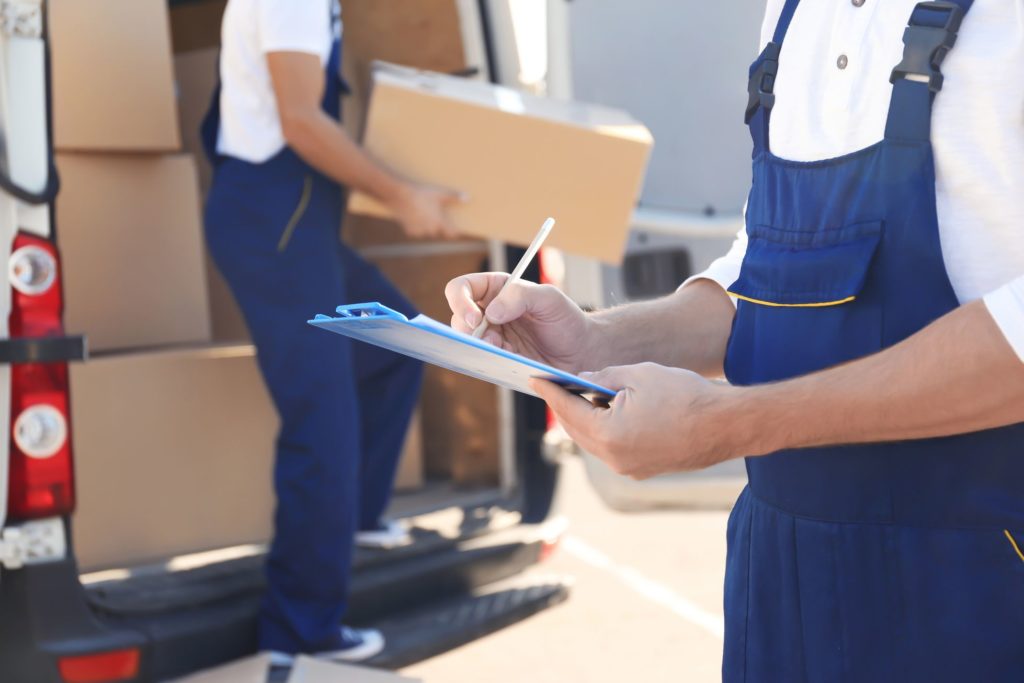
With the Right Help, You Won’t Bring Unnecessary Items to Your New Home
When planning a move, don’t forget to sort through your belongings and decide what to keep and what to let go of. Work with a professional relocation team, and your belongings will be transported efficiently. If you’re looking to relocate to a new state with ease, State2State Movers can make your move stress-free and efficient. Contact us today to get started on your relocation and experience our exceptional customer service and trustworthy relocation solutions. Don’t wait – book your move with State2State Movers now!
Frequently Asked Questions About What Not to Pack When Moving
Why Is It Important to Know What Not to Pack When Moving?
It is important to know what not to prepare for the relocation because bringing prohibited or hazardous items can pose a risk to your health and safety, as well as the safety of your belongings and those around you. Transporting prohibited items, such as illegal drugs or weapons, can result in legal consequences and fines.
What Are Some Common Items That Should Not Be Packed When Moving?
There are several common items that should not be packed when relocating to another country, including hazardous materials such as gasoline, propane, and chemicals, as well as firearms and ammunition. Other items that are not recommended for packing include perishable foods, plants, and live animals.
Can I Pack Perishable Food Items When Moving?
Perishable food items, such as dairy products, meat, and fresh produce, can spoil quickly and may not survive a long move. In general, it’s not recommended to bring perishable food items unless you have a specialized transport method, such as a refrigerated truck, and are relocating a short distance.
Are There Any Restrictions on Packing Hazardous Materials When Moving?
Yes, there are restrictions on wrapping up hazardous materials when relocating. Hazardous materials are defined as items that are flammable, corrosive, explosive, or otherwise pose a risk to health and safety.
Should I Pack My Plants When Moving?
It depends on the type of plants you have and the distance you are relocating. If you have small plants that can easily be transported in your own vehicle, you may be able to pack them and bring them with you. However, for larger plants or for moves over longer distances, it may be more difficult to transport them safely.
Can I Pack My Household Cleaners and Chemicals When Moving?
Yes, you can pack your household cleaners and chemicals, but it’s important to take certain precautions to ensure their safe transportation. First, you should check with your relocation company to see if they have any specific guidelines for packing and transporting these items.
Can I Pack My Firearms When Moving?
Yes, you can bring your firearms when relocating, but it’s important to follow certain guidelines and regulations. If you are relocating within the same state, you may be able to transport your firearms in your own vehicle, but if you are relocating across state lines, you will need to comply with federal and state laws.
What Are Some Consequences of Packing Items That Should Not Be Packed When Moving?
Packing items that should not be packed when relocating can lead to several consequences. For one, it can be unsafe, especially if you are transporting hazardous materials or items that can easily break or cause damage. It can also lead to additional costs, as some relocation companies may charge extra for packing or transporting prohibited items.
How Can I Dispose of Items That I Can't Pack When Moving?
One option is to donate them to a local charity or nonprofit organization like Goodwill. Another option is to sell them online or through a garage sale. You can also consider giving them away to friends or family members who may have a use for them.
Can Professional Movers Help Me Determine What Not to Pack When Moving?
Yes, professional cross-country movers can definitely help you determine what items should not be packed. They have extensive experience in relocating and can provide valuable advice on which items are hazardous, prohibited by law, or simply not worth the trouble of transporting.

